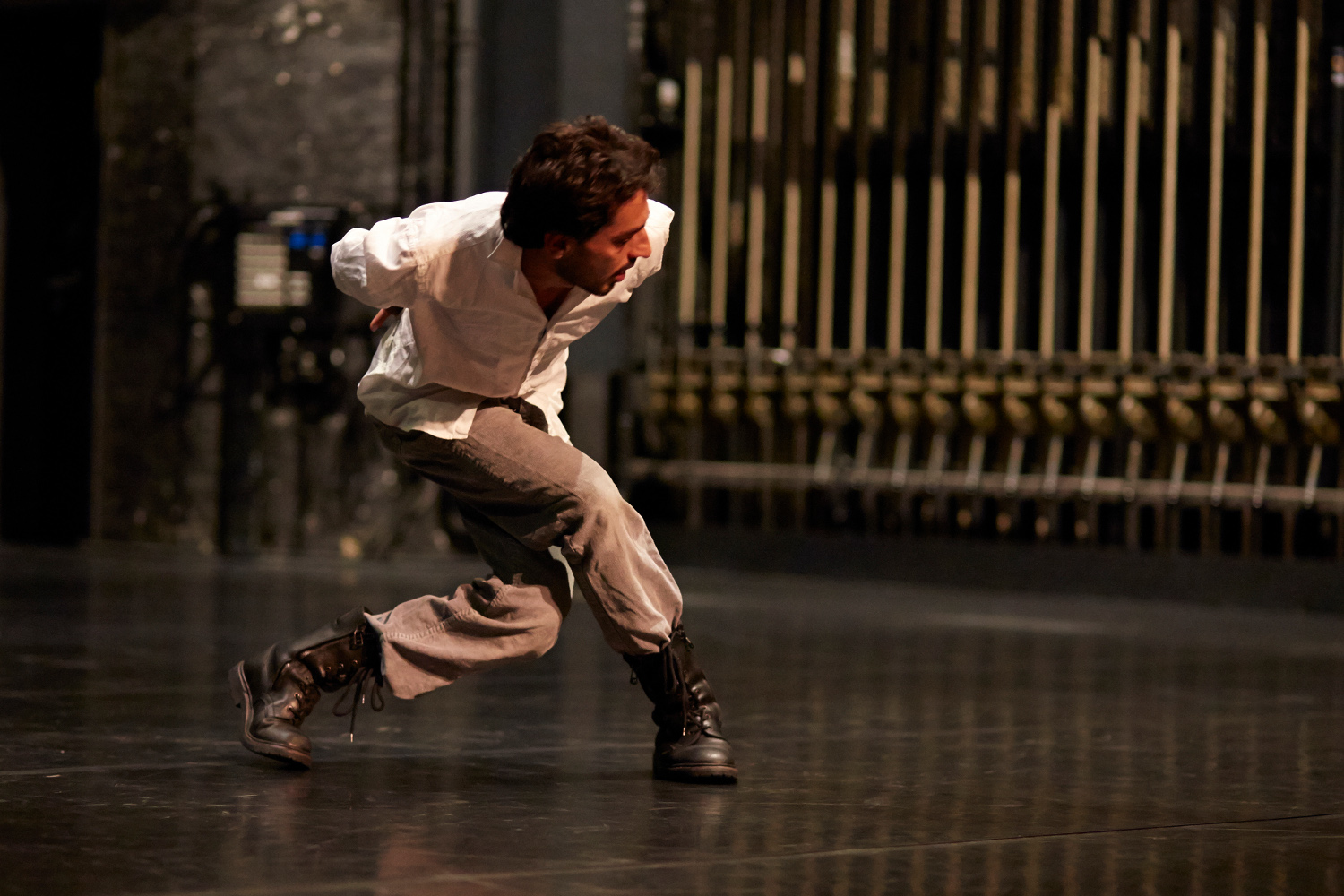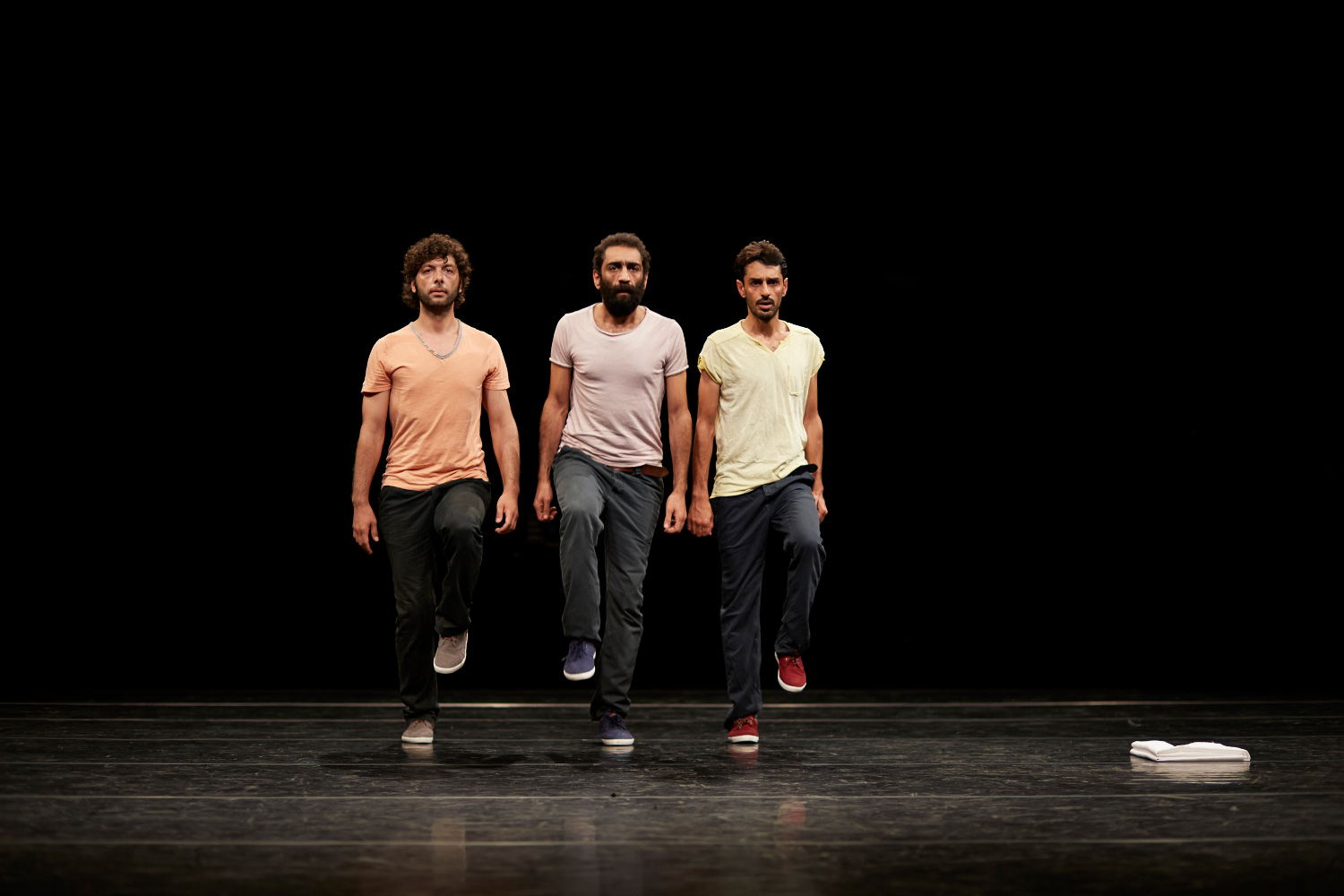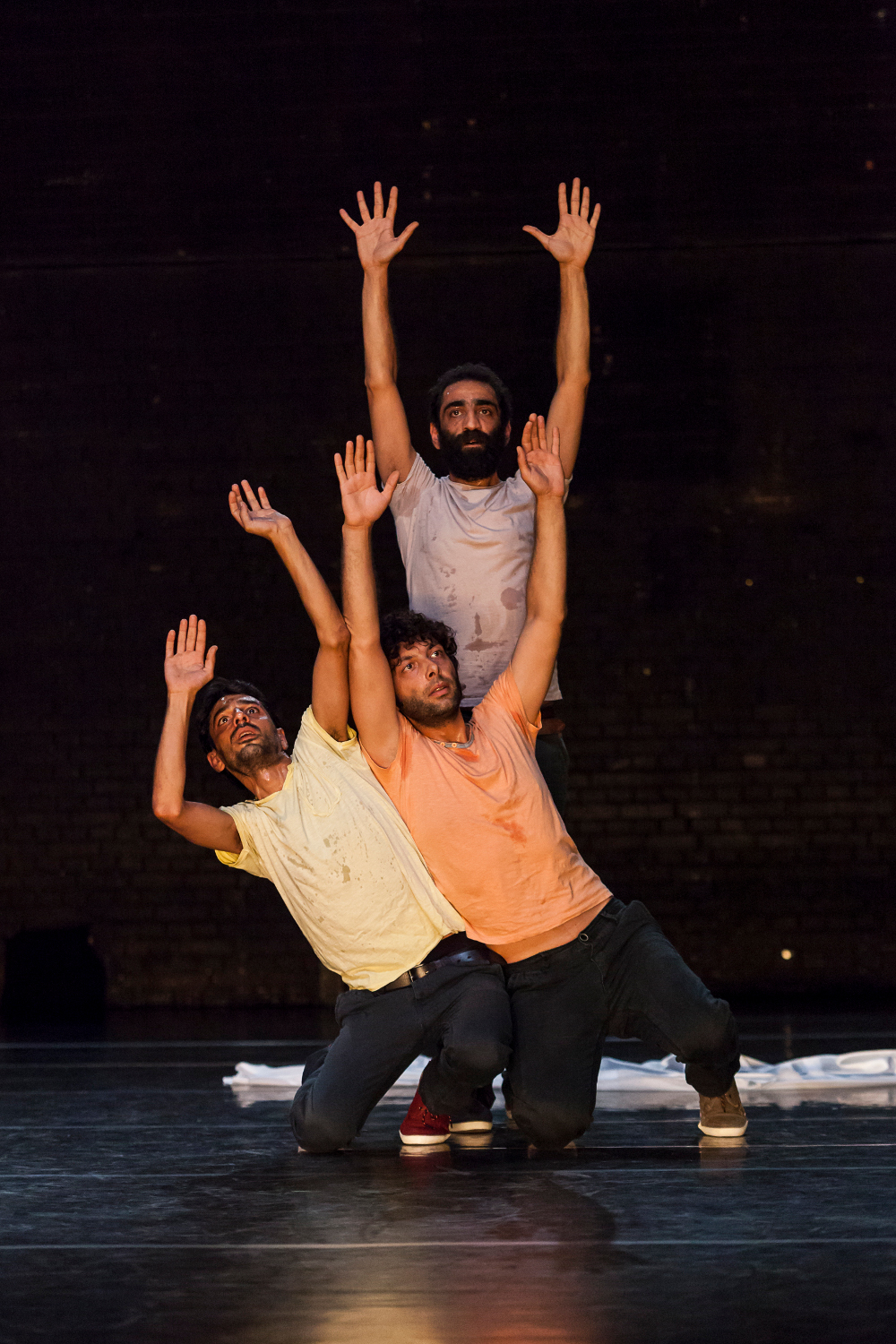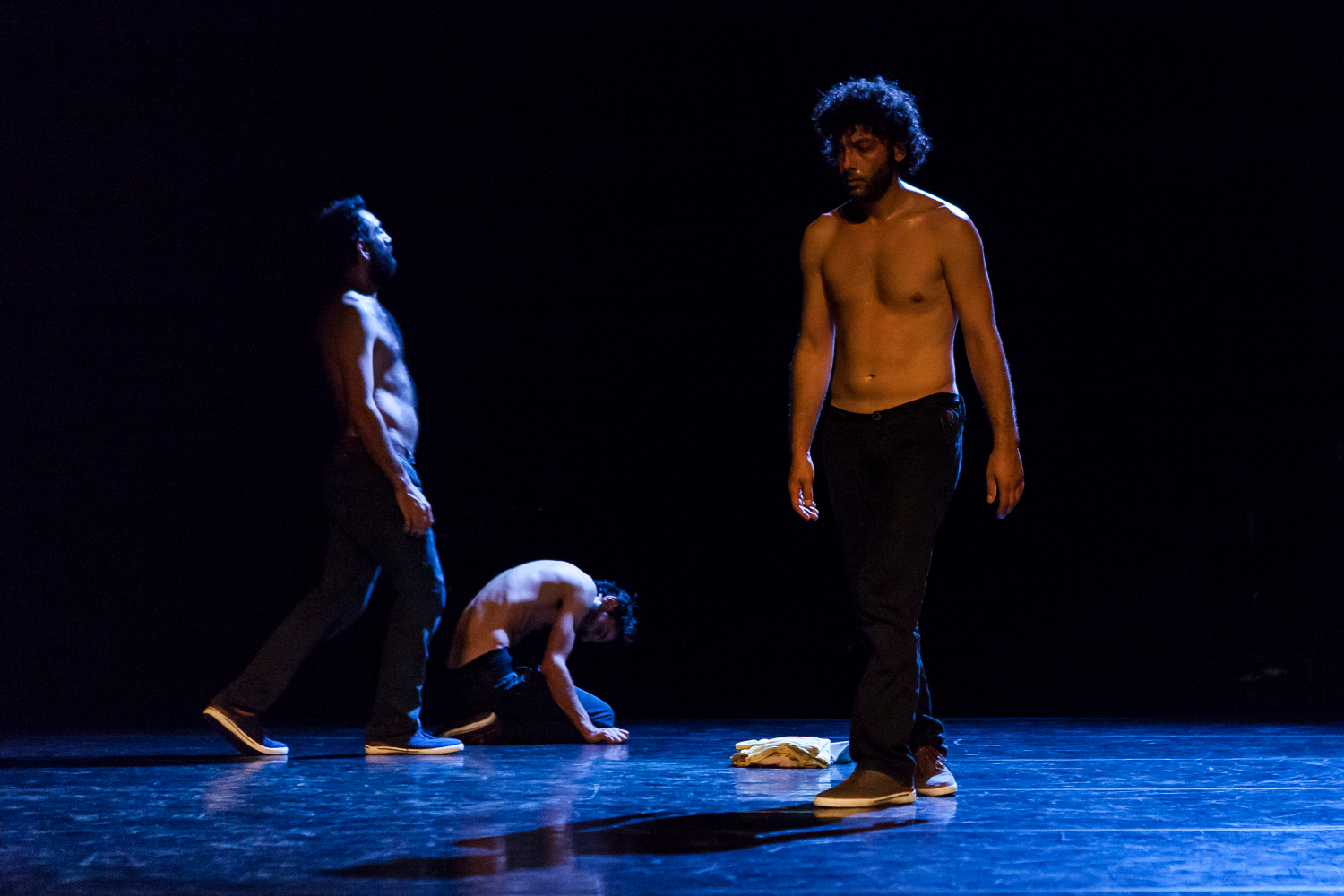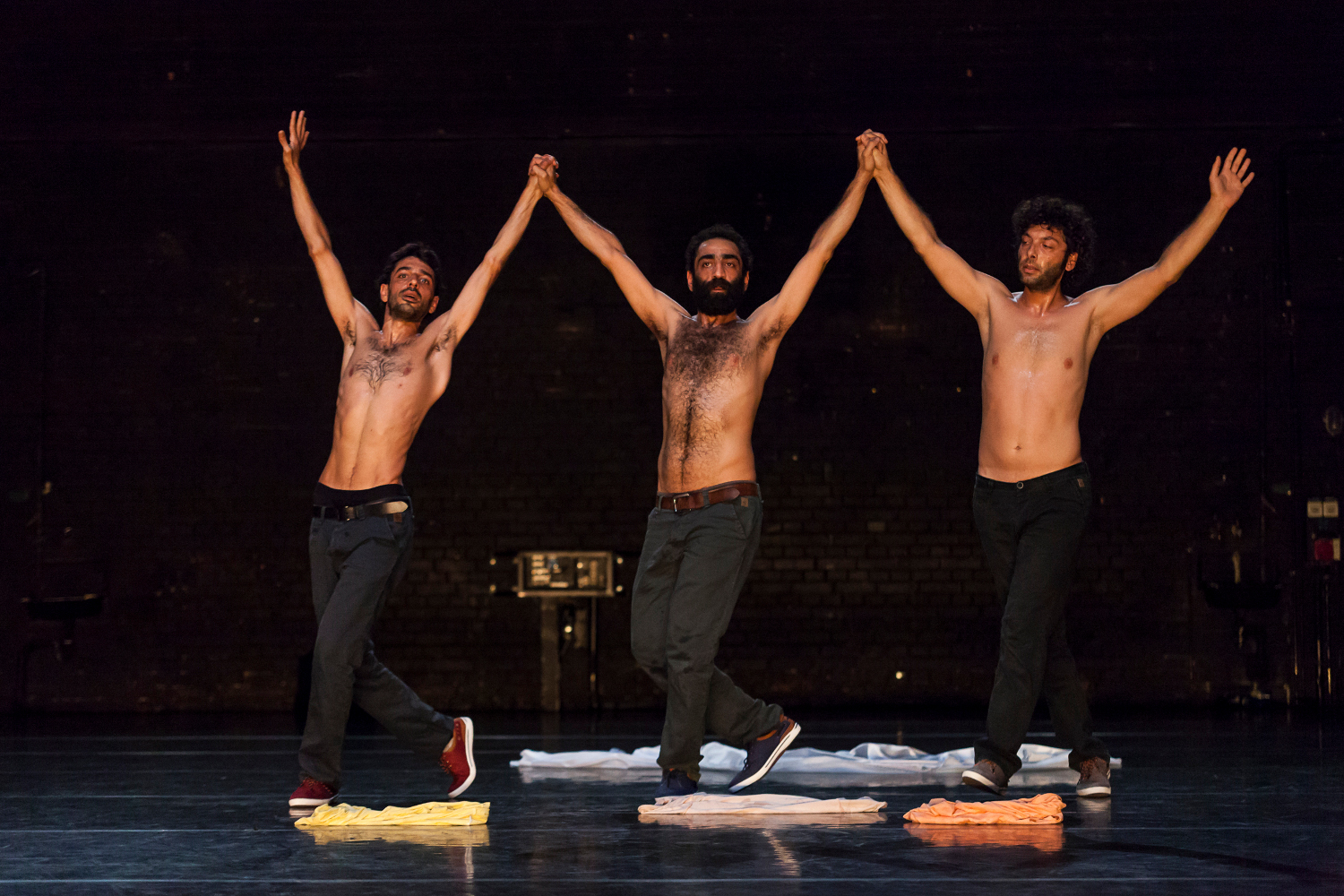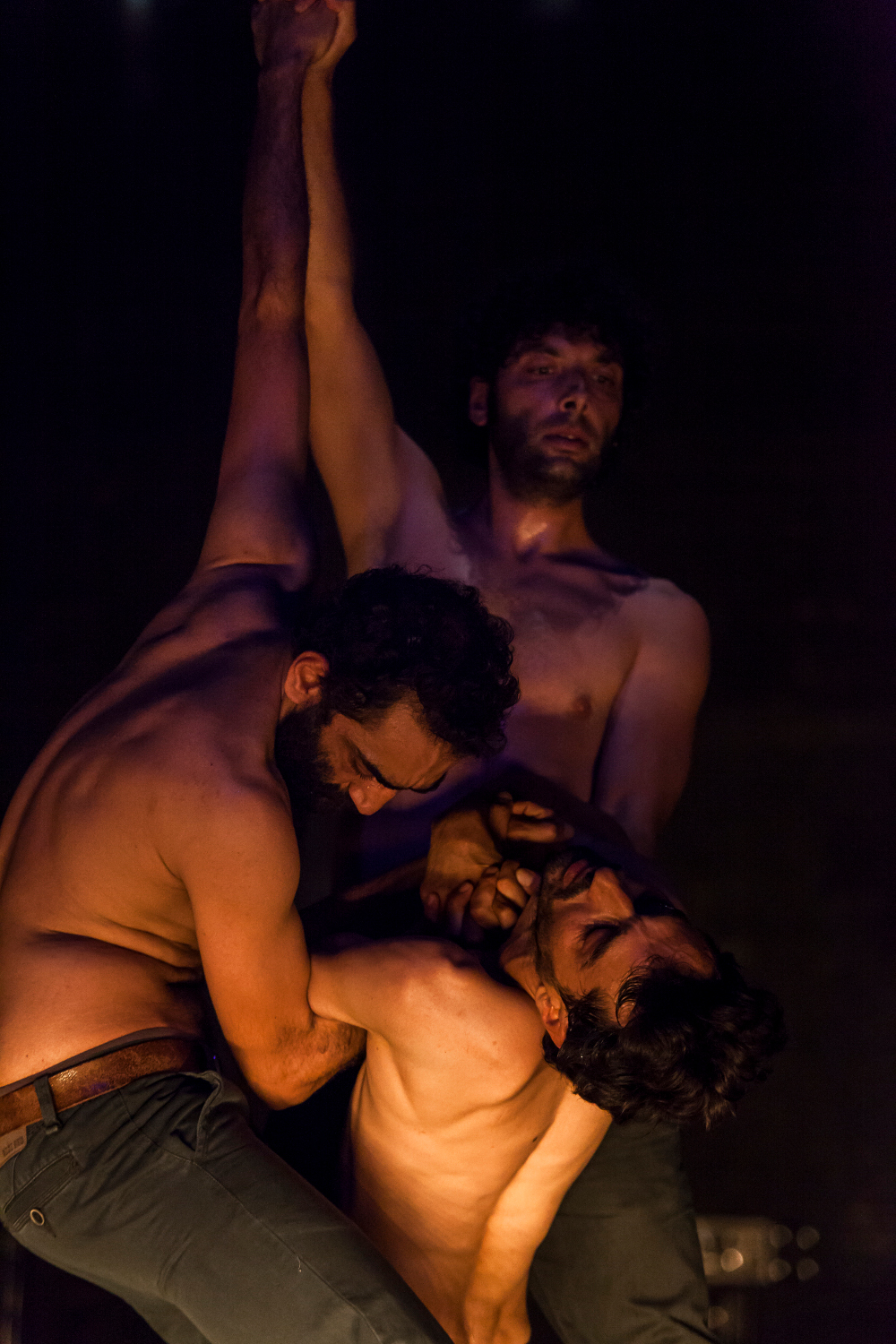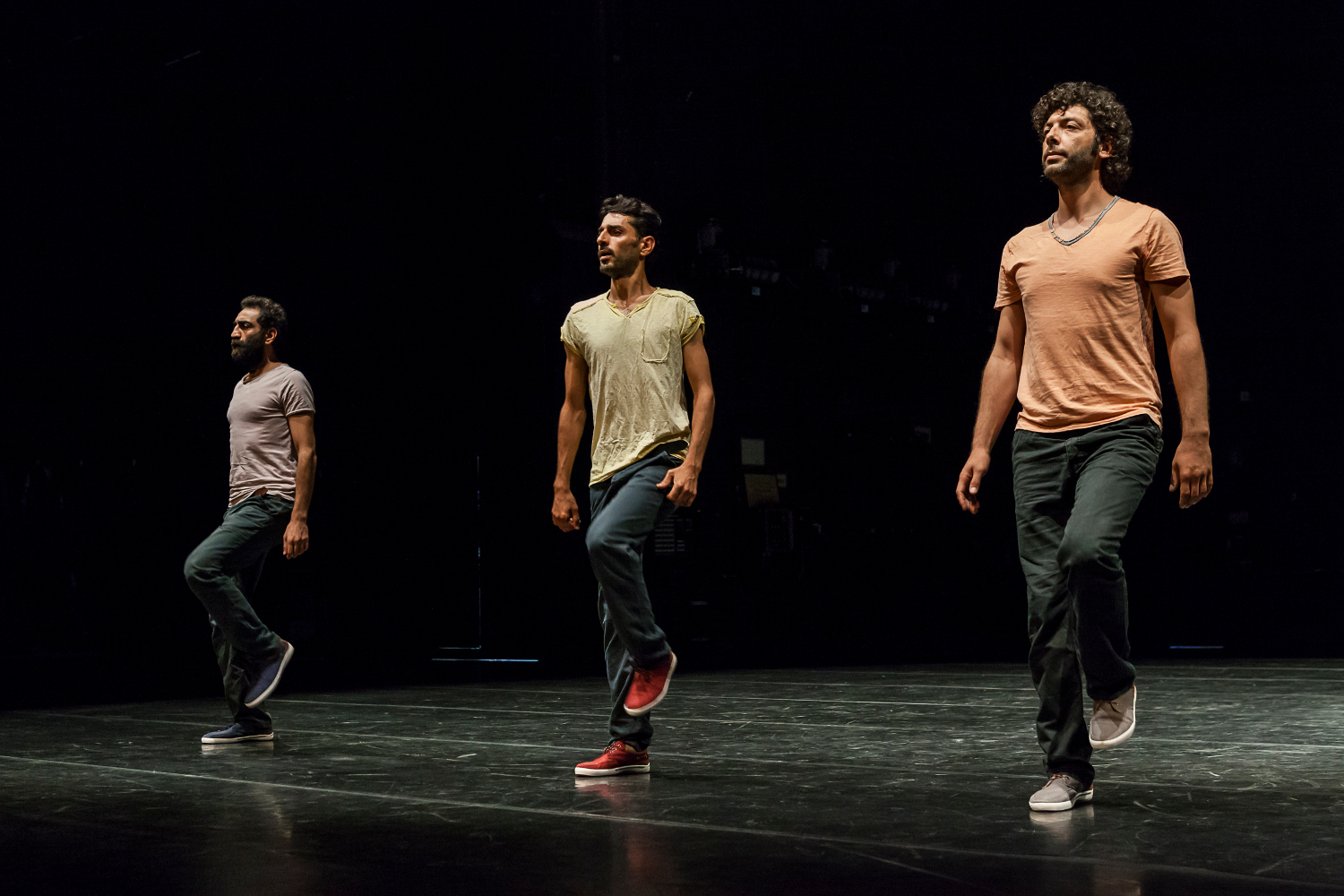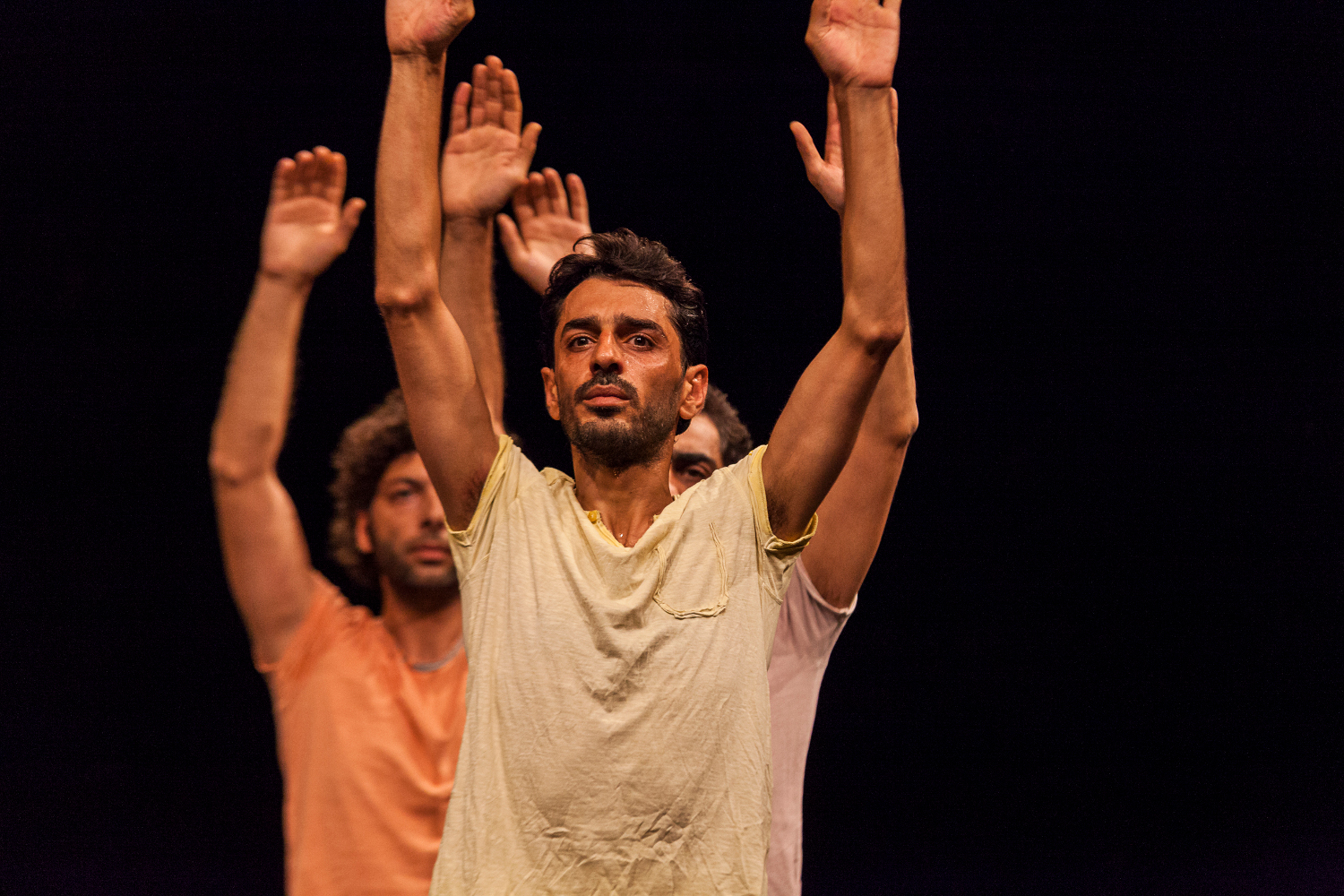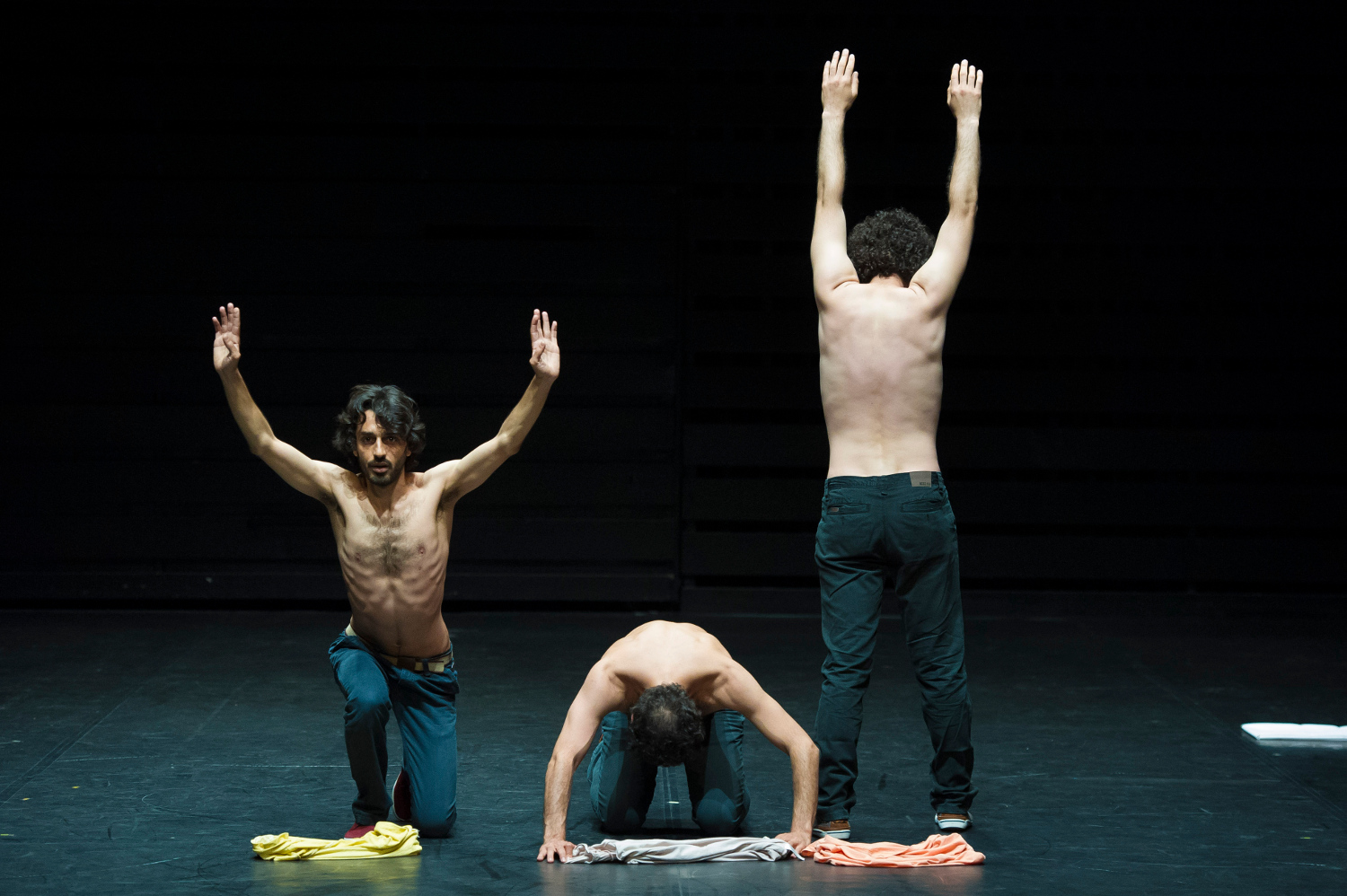Choreography Mithkal Alzghair
Performers Rami Farah, Samil Taskin, Mithkal Alzghair
Dramaturgical consultant Thibaut Kaiser
Lighting design Séverine Rième
Co-productions Godsbanen – Aarhus (Denmark) / Musée de la Danse-CCN de Rennes et de Bretagne / the AFAC foundation / Les Treize Arches-Scène conventionnée de Brive.
With the support of the Centre national de la Danse – Pantin, as part of its special residencies / Studio Le Regard du Cygne / Théâtre Louis Aragon, scène conventionnée danse de Tremblay-en-France / ARCADI Île-de-France.
This work was awarded first prize at the Danse élargie 2016 competition organised by the Théâtre de la Ville-Paris and the Musée de la Danse-Rennes, in partnership with the Fondation d’Entreprise Hermès.
The Institut français and ONDA regularly support the national and international touring of HEK-MA.
The urgency of being forced to move, escaping, the wait before the departure, exile – these were things I felt physically. Leaving behind a territory that had been created by an entire community of which I was a member also supposed leaving behind habits, relationships and commitments. The change in context produced effects (accidents, incidents, catastrophes, etc.) that obliged me to move both physically and bodily, as well as emotionally and intellectually. It is this idea of moving that I am exploring in this work. What would movement be like if it were involuntary? What is this body that is forced to move or stay still? How does the individual reposition himself after moving to a new context, where he is forced to reinvent his territory, to rebuild it, to create a new identity for himself, knowing perhaps that he may have to leave it again? It is a constant process of construction and deconstruction.
Déplacement is rooted in Syrian heritage and culture, its traditions and its physical realities, its trance, its dynamics and its repetitions. I try to understand where these traditional dances come from, to identify the processes by which they are imbued with the social and political realities that created them. Starting from a specific heritage, Déplacement transcends cultural differences to explore the human condition in the context of exile.
Mithkal Alzghair
Displacement consists of two parts: a solo and a trio.
